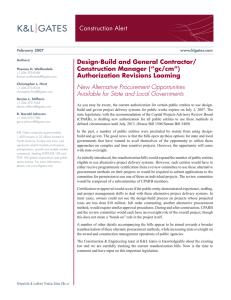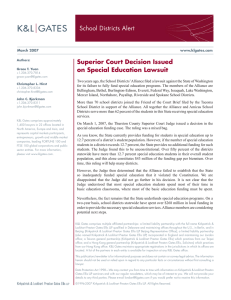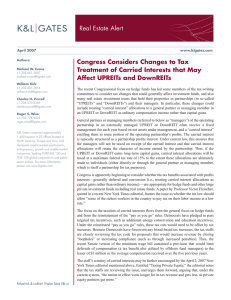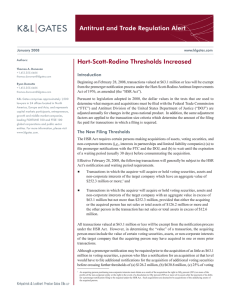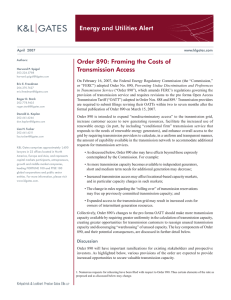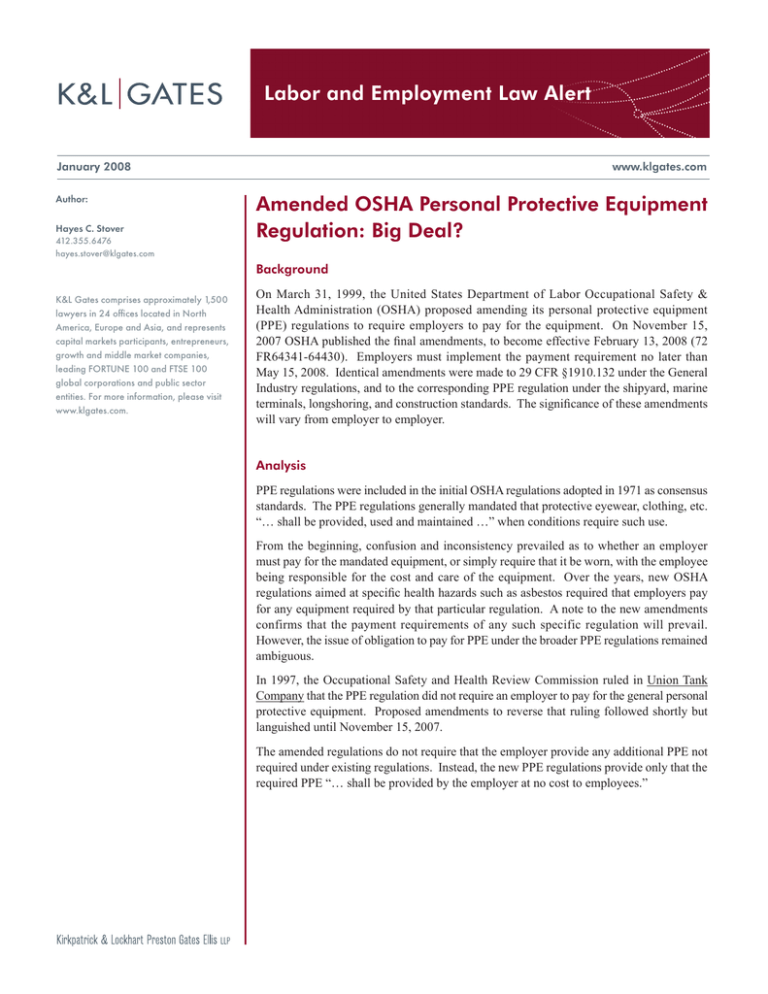
Labor and Employment Law Alert
January 2008
Author:
Hayes C. Stover
412.355.6476
hayes.stover@klgates.com
www.klgates.com
Amended OSHA Personal Protective Equipment
Regulation: Big Deal?
Background
K&L Gates comprises approximately 1,500
lawyers in 24 offices located in North
America, Europe and Asia, and represents
capital markets participants, entrepreneurs,
growth and middle market companies,
leading FORTUNE 100 and FTSE 100
global corporations and public sector
entities. For more information, please visit
www.klgates.com.
On March 31, 1999, the United States Department of Labor Occupational Safety &
Health Administration (OSHA) proposed amending its personal protective equipment
(PPE) regulations to require employers to pay for the equipment. On November 15,
2007 OSHA published the final amendments, to become effective February 13, 2008 (72
FR64341-64430). Employers must implement the payment requirement no later than
May 15, 2008. Identical amendments were made to 29 CFR §1910.132 under the General
Industry regulations, and to the corresponding PPE regulation under the shipyard, marine
terminals, longshoring, and construction standards. The significance of these amendments
will vary from employer to employer.
Analysis
PPE regulations were included in the initial OSHA regulations adopted in 1971 as consensus
standards. The PPE regulations generally mandated that protective eyewear, clothing, etc.
“… shall be provided, used and maintained …” when conditions require such use.
From the beginning, confusion and inconsistency prevailed as to whether an employer
must pay for the mandated equipment, or simply require that it be worn, with the employee
being responsible for the cost and care of the equipment. Over the years, new OSHA
regulations aimed at specific health hazards such as asbestos required that employers pay
for any equipment required by that particular regulation. A note to the new amendments
confirms that the payment requirements of any such specific regulation will prevail.
However, the issue of obligation to pay for PPE under the broader PPE regulations remained
ambiguous.
In 1997, the Occupational Safety and Health Review Commission ruled in Union Tank
Company that the PPE regulation did not require an employer to pay for the general personal
protective equipment. Proposed amendments to reverse that ruling followed shortly but
languished until November 15, 2007.
The amended regulations do not require that the employer provide any additional PPE not
required under existing regulations. Instead, the new PPE regulations provide only that the
required PPE “… shall be provided by the employer at no cost to employees.”
Labor and Employment Law Alert
There are exceptions to the employer’s obligation to
pay for required PPE:
• There is no obligation to pay for non-specialty
safety toe protective footwear, or non-specialty
prescription safety eyewear, if the employee is
permitted to wear the items off premises.
• If the employer provides metatarsal guards but
the employee prefers footwear with built-in
protection, the employer is not obligated to pay
for the footwear.
• The employer is not required to pay for logging
boots; everyday type clothing and normal work
boots; or ordinary clothing, skin creams, etc.
used solely for protection from weather, such
as coats, rubber footwear, sunglasses, etc.
Conclusion
Generally speaking, both labor representatives
and employer representatives were satisfied if not
happy about the final rule. Its impact will vary.
Many employers, either by policy or by collective
bargaining agreement, already do voluntarily what is
now required. Others, often smaller employers, will
have a new expense. Still others will find that they are
paying for more than required, especially with respect
to items for protection against the elements. Protective
footwear will likely be the item most affected. Issues
will arise in applying the lost or intentionally damaged
exception. On balance, however, compliance with
the new regulations is not expected to cause a major
disruption for business.
In addition to providing the initial PPE at its cost, the
employer must provide replacement PPE when needed,
unless the employee has lost or intentionally damaged
the original.
The regulations have always provided in paragraph (b)
that employees have the option of providing their own
PPE rather than using that provided by the employer.
The amended regulation provides that if an employee
elects that option, the employer need not reimburse the
employee for the cost.
K&L Gates comprises multiple affiliated partnerships: a limited liability partnership with the full name Kirkpatrick & Lockhart Preston Gates Ellis LLP qualified
in Delaware and maintaining offices throughout the U.S., in Berlin, and in Beijing (Kirkpatrick & Lockhart Preston Gates Ellis LLP Beijing Representative
Office); a limited liability partnership (also named Kirkpatrick & Lockhart Preston Gates Ellis LLP) incorporated in England and maintaining our London
office; a Taiwan general partnership (Kirkpatrick & Lockhart Preston Gates Ellis) which practices from our Taipei office; and a Hong Kong general
partnership (Kirkpatrick & Lockhart Preston Gates Ellis, Solicitors) which practices from our Hong Kong office. K&L Gates maintains appropriate registrations
in the jurisdictions in which its offices are located. A list of the partners in each entity is available for inspection at any K&L Gates office.
This publication/newsletter is for informational purposes and does not contain or convey legal advice. The information herein should not be used or relied
upon in regard to any particular facts or circumstances without first consulting a lawyer.
Data Protection Act 1998—We may contact you from time to time with information on Kirkpatrick & Lockhart Preston Gates Ellis LLP seminars and with our
regular newsletters, which may be of interest to you. We will not provide your details to any third parties. Please e-mail london@klgates.com if you would
prefer not to receive this information.
©1996-2008 Kirkpatrick & Lockhart Preston Gates Ellis LLP. All Rights Reserved.
January 2008 | 2

